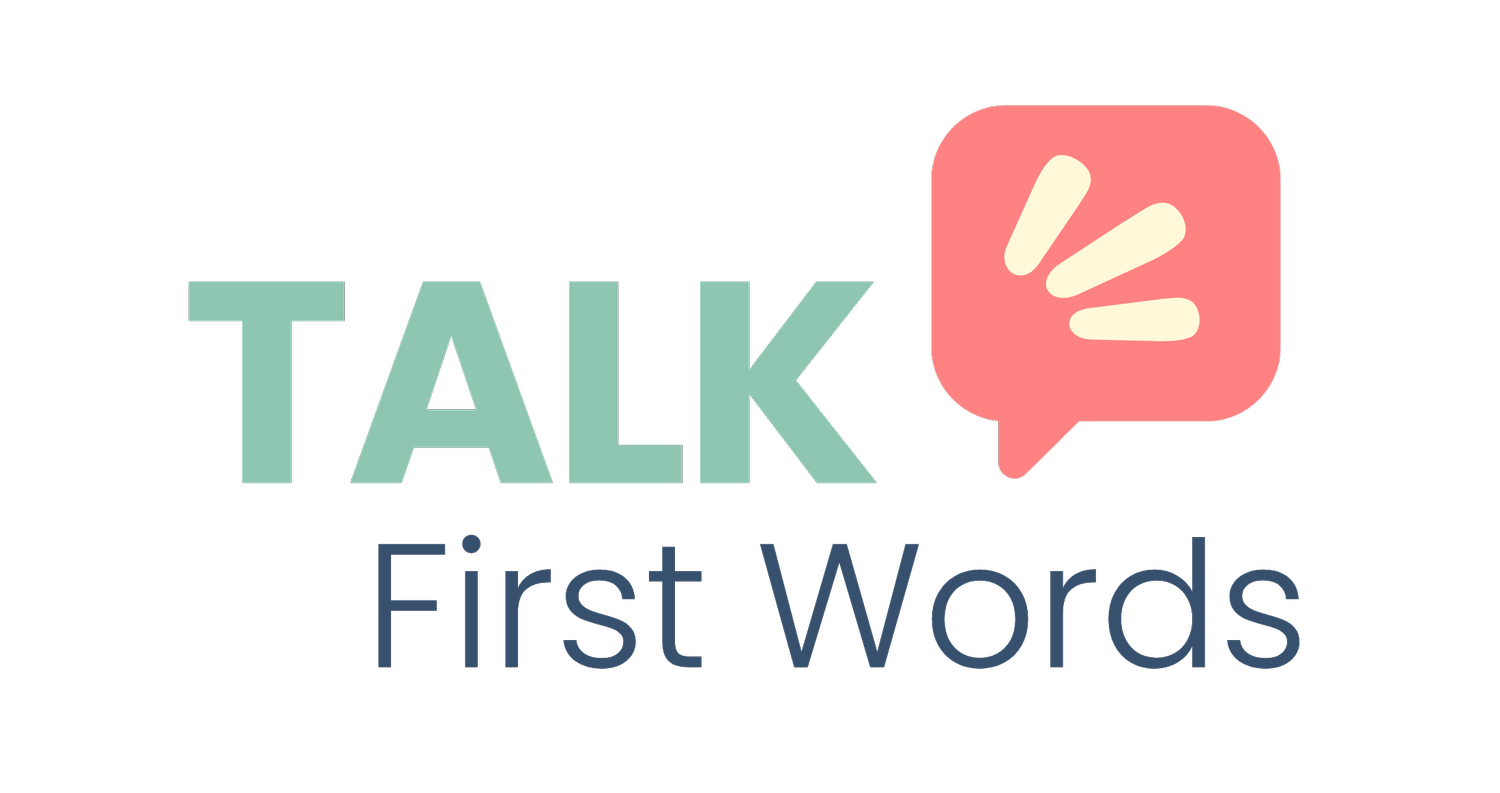5 Common Mistakes Parents Make When Teaching First Words (and What to Do Instead)
“It’s not about doing more — it’s about doing things differently.”
If you’ve been trying to help your toddler talk but aren’t seeing progress, you’re not alone — and it’s not your fault.
As a pediatric Speech-Language Pathologist, I coach parents through this exact stage every week.
Most parents are doing their best... but many unintentionally make choices that don’t actually support early language development.
Let’s break down five common mistakes I see all the time — and what to do instead, starting today.
❌ Mistake 1: Asking Too Many Questions
“What's that?”
“What color is it?”
“Can you say...?”
➡️ Why it’s a problem:
Questions can feel like pressure, especially if your child isn’t ready to answer yet. Quizzing too often can make toddlers shut down or tune out.
✅ What to Do Instead:
Use comments, not questions.
Try saying: “That’s a big truck!” or “The cow says moo.”
This creates a safe, low-pressure space where your child can absorb and eventually imitate language naturally, without feeling like they’re being tested.
❌ Mistake 2: Talking Too Much
It’s natural to want to fill every silence. But too much fast-paced adult talk can actually overwhelm toddlers and leave no space for their voice.
✅ What to Do Instead:
Use short, simple phrases — and pause after speaking.
Try: “Ball… roll!” (Then pause for 3–5 seconds.)
Waiting gives your child time to process what you said and possibly respond — even if that response is just a look, sound, or gesture.
❌ Mistake 3: Expecting Too Many Words at Once
We all love to hear toddlers speak, and it’s easy to fall into the trap of expecting full sentences like: “I want more milk, please!”
But that can be too much, too fast.
✅ What to Do Instead:
Use the “one-up” strategy — meet your child where they are, then model just one step beyond.
If your child says, “Ball.”
You say, “Red ball!”
If they’re silent, start with simple single words. This helps build confidence and keeps language growth moving at a comfortable pace.
💡 Want help using these strategies in real time?
That’s exactly what we do inside the TALK coaching group — walk through everyday language-building shifts that make a real difference.
❌ Mistake 4: Only Practicing During “Therapy Time”
Some families think speech progress only happens during 15-minute “practice” sessions. But toddlers don’t learn language in isolated drills — they learn it in life.
✅ What to Do Instead:
Embed language into your everyday routines:
Diaper changes
Snack time
Bath
Going outside
The more you repeat simple words and phrases in meaningful, real-life moments, the more they’ll stick.
❌ Mistake 5: Waiting for a Diagnosis
Too often, families are told to “wait and see.” Meanwhile, you’re watching your child fall behind — and feeling helpless.
✅ What to Do Instead:
You don’t need to wait for a diagnosis or referral to start helping your child talk.
Use simple, SLP-backed strategies today — and know that support is available now.
That’s what TALK is here for: coaching, connection, and progress without long waitlists.
💡 Your Week 2 Action Plan
Here’s what to focus on this week:
🎯 1. Replace questions with comments
Instead of: “What is that?”
Try: “It’s a big truck!”
🧘 2. Talk less. Pause more.
Use slow, short phrases and wait 3–5 seconds after speaking.
⬆️ 3. Build one level up.
Child says: “Ball.” → You say: “Red ball!”
These small shifts can lead to big breakthroughs.
📅 Want Weekly Support?
If this blog made you think, “That’s me!” — you’re not alone. And you don’t have to figure it out on your own.
Every week in TALK, I help families like yours learn and apply these tools:
✔️ Live coaching calls to ask questions and get real-time feedback
✔️ Personalized action plans tailored to your child
✔️ A supportive community of parents who truly get it
💻 Join the next TALK coaching group here.
📲 Or DM me on Instagram at@talk.firstwords

